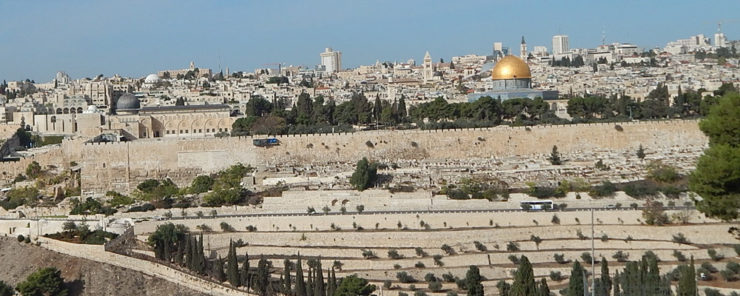In our ongoing consideration of the names of Deity, we need to include two of importance but seldom used. Both names begin by the first two letters of Elohim, namely, the “El”. In order of their appearance in Scripture, they are El-Elyon and El-Shaddai. The first, El-Elyon, is found in Genesis 14:18. It centers around Abraham’s encounter with the mysterious personage of Melchizedek. He is called the “priest of God most high” or “the most high God”. The Hebrew is El-Elyon. Speculation abounds as to the true identity of Melchizedek, from his actually being a pre-incarnate manifestation of Christ…what we would call a Christophony…to possibly being another specially chosen vessel that God is using in the life of Abraham. So, while the jury may still be out regarding the actual identity of Melchizedek, two things are certain: He was a priest, and it was of the most high God that Melchizedek served as a priest. The designation “El” is the Hebrew word for “God”. It speaks of unlimited power or strength. It is the first part of the name “Elohim”. Elohim, of course, is plural for God. Singular for God in Hebrew is “Eloah”, “E-l-o-a-h”. But “E-l” constitutes a prefix designating the Deity, and that which follows “Elyon” further describes a key feature of the Deity. In this case, the “El” or “the God” is that which is the most high God with none other superior to Him. Once cannot go higher than that which is most high.
Abraham, as exalted by God as he was, nevertheless recognized the station of this Melchizedek and honored his position by rendering him one-tenth of the spoils that he had taken from Chedorlaomer and his allied kings. El-Elyon, he most high God.
The next designation in the names of the Deity is “El Shaddai”. The prefix “El”, once again, speaks of might and strength. But what does “Shaddai” mean? A popular Christian hymn has been written called “El Shaddai”. An English equivalent is rendered “God, the almighty”. “Shaddai” in Hebrew is found forty-eight times in the Old Testament. In half of those appearances, the word from which it is derived is the word for “breast.” Throughout Scripture, the mother’s breast is portrayed as that which sustains and nourishes life. Genesis 49 records Jacob prophesying the future of his sons who surrounded him upon his deathbed. Of his son Joseph, Jacob said, “By the Almighty who blesses you with blessings of heaven above, blessings of the deep that lie beneath, blessings of the breast and of the womb.” El-Shaddai is the almighty One who nourishes and sustains Abraham’s seed as a mother does her offspring. It is a beautiful picture of the plentitude and provision of El-Shaddai. El-Shaddai, the all-nourishing sustaining One.
CC-04-19


Published by